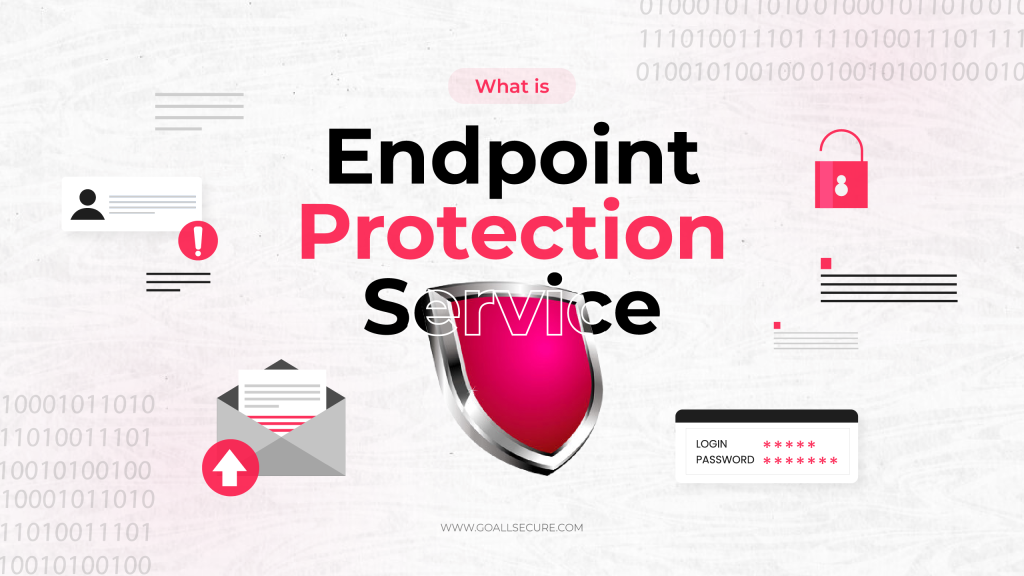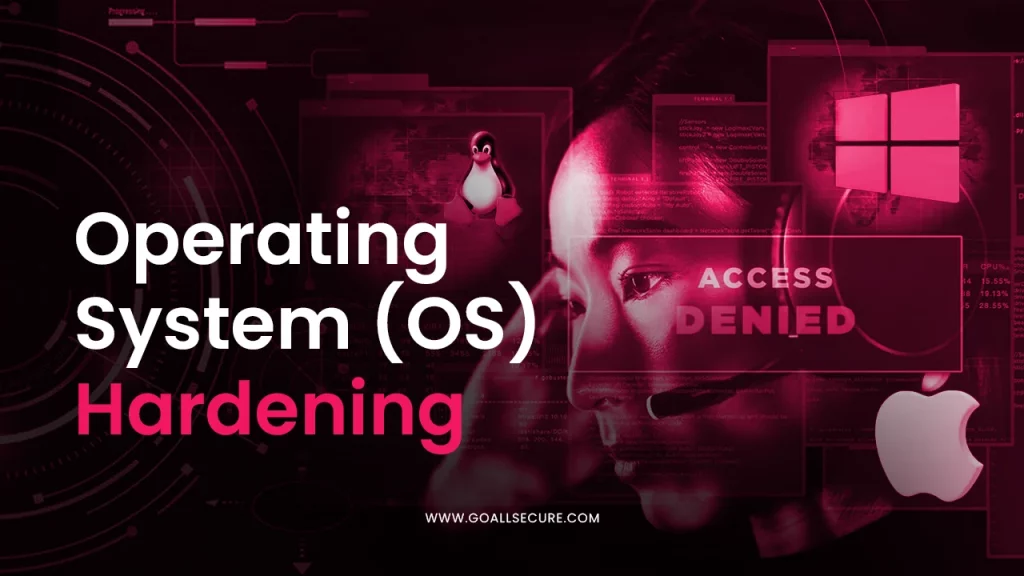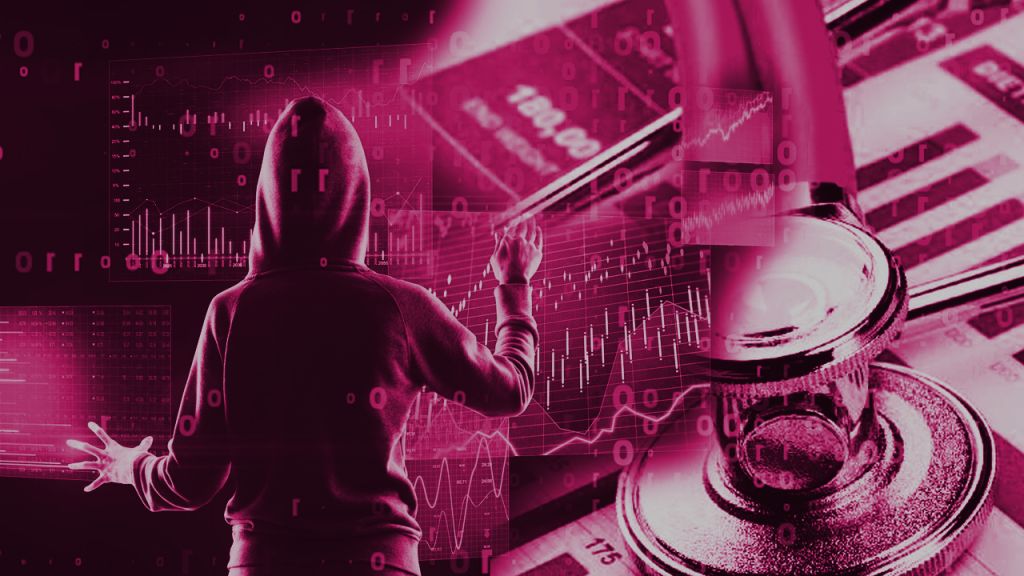“In the last two years, 89% of healthcare organisations had a data breach.”
In recent years, digitization has grown rapidly in the healthcare sector. Many different health monitoring systems are used by healthcare organisations, including electronic health record programmes, radiological information systems, practice management programmes, e-doctor programmes, clinical support programmes, and physician programmes. Healthcare digitization now also includes prescriptions, pharmacy services, insurance, and patient admissions. All of it has made cybersecurity one of the most important components of the healthcare industry, as it safeguards patients’ personal information, healthcare data, and valuable insights. In this blog, you’ll read about the significance of cybersecurity in healthcare.
Common Cybersecurity Threats in Healthcare
Given the fast-paced shift towards digitization, every industry is facing some type of cyber threat. The situation in the healthcare industry seems to be worse because of the highly valuable data they collect, store, and process. The healthcare sector is also a prime target for cybercriminals due to a mix of weak cybersecurity procedures, sensitive data storage, and a desperate attempt to maintain business continuity at all costs. The unexpected pandemic only made this inevitable.
Several cybersecurity-related problems afflict the healthcare sector. These problems range from distributed denial of service (DDoS) assaults that impair hospitals’ ability to deliver patient care to malware that compromises the security of systems and the privacy of patients. Here is a list of the top cybersecurity threats in healthcare.
- Data Breaches
- Ransomware and Malware Attacks
- Vulnerability of Legacy Systems
- Cyberattacks Against Insecure Medical Devices and Equipment
- Insider Threats
- Distributed Denial of Service (DDoS) Attack
- Targeted Phishing Attacks
- Cloud and Network Vulnerability Attacks
- Outdated Systems
- Business Email Compromise and Fraud Scams
Major Cyberattacks Worldwide That Had a Lasting Impact on the Healthcare Industry
The number of cyberattacks against the healthcare sector is among the highest, outpacing all other industries, and there are rumblings of a lot more to come. You can be sure of the fact that more severe cyberattacks are approaching the industry when you combine this trend with breach damage expenses. Which begs the question, why healthcare?
For our survival and well-being, healthcare is essential. Our lives depend on healthcare providers being able to access systems consistently to deliver that care, even while our medical records are private. There aren’t many sectors that affect our well-being so directly. Why would we refuse to pay the ransom if the invaders might harm everything which keeps us safe, secure, and healthy?
Here is a list of cyber attacks that shook the healthcare industry to its core:
- WannaCry Ransomware Attack (2017)
The WannaCry ransomware attack targeted healthcare organisations globally, including the UK’s National Health Service (NHS). It disrupted patient care, cancelled surgeries, and locked healthcare providers out of critical systems.
- NotPetya (Petya/ExPetr) Cyberattack (2017)
While NotPetya initially appeared as ransomware, it was later revealed to be a destructive malware attack. It affected healthcare organisations in Ukraine and beyond, causing data loss and system disruptions.
- SingHealth Data Breach (2018)
Singapore’s SingHealth experienced a massive data breach that exposed the personal records of 1.5 million patients.
- LabCorp Data Breach (2018)
One of the largest clinical laboratory networks in the U.S., LabCorp, suffered a data breach that exposed patient information.
- Universal Health Services (UHS) Ransomware Attack (2020)
UHS, a major U.S. healthcare provider, was hit by a ransomware attack that disrupted hospital operations across its network.
- University of California, Los Angeles Health (2014)
In 2014, suspicious activity was noticed on the UCLA Health network by officials. Authorities revealed in 2015 that the cyber attack had in fact compromised systems containing patient data, including names, Social Security numbers, dates of birth, health plan identification numbers, and medical information.
- HCA Healthcare (2023)
Cybercriminals gained access to an external storage site that formatted emails and calendar reminders sent to patients in a July 5, 2023, attack on Nashville, Tennessee-based HCA Healthcare. 11 million patients across 20 states had their information stolen, including names, email addresses, birth dates, and other personally identifying information.
These cyberattacks had a lasting impact on the healthcare industry by highlighting vulnerabilities, emphasising the importance of robust cybersecurity measures, and prompting regulatory changes. Healthcare organisations have since invested more heavily in cybersecurity to protect patient data and maintain the integrity of healthcare services.
Importance of Cyber Security in Healthcare
Healthcare organisations have complex environments, so a range of defences are required to protect them effectively from online attacks. Any organisation in the medical sector, including healthcare providers, insurers, pharmaceutical, biotechnology, and medical device manufacturers, has to prioritise healthcare cybersecurity. Protecting organisations from external and internal cyber assaults entails several steps, in addition to ensuring the availability of medical services, the proper operation of medical systems and equipment, the preservation of the security and integrity of patient data, and compliance with industry rules. Here are some reasons explaining why cyber security is paramount for the healthcare sector:
Safeguarding Patient Data
A vast amount of sensitive patient data, including medical records and personal data, is kept in storage by healthcare organisations. This data is protected by cybersecurity from theft, breaches, and unauthorised access.
Protecting Patient Privacy
Maintaining patient trust is essential. The confidentiality of patients’ personal and health-related information is guaranteed by effective cybersecurity procedures.
Keeping Ransomware Attacks at Bay
Ransomware attacks frequently target the healthcare industry. To prevent or mitigate these attacks from impairing patient care and endangering lives, cybersecurity measures are crucial.
Defending Medical Devices
Strong cybersecurity is needed for the integration of IoT devices in healthcare, such as connected medical equipment and wearable health trackers, to prevent vulnerabilities and safeguard patients.
Compliance with Regulations
Healthcare organisations are required to abide by strict laws, including HIPAA and GDPR. Cybersecurity is essential for being compliant with the regulations and avoiding legal repercussions.
Keeping Healthcare Operations Running
Cyberattacks have the ability to disrupt healthcare systems, impact patient care, and even put lives in jeopardy. To guarantee the continuity of healthcare services, effective cybersecurity precautions are crucial.
What Can an Effective Collaboration Between the Healthcare and Cybersecurity Industries Achieve?
- Enhanced Security Practices
- Timely Threat Detection
- Employee Education and Training
- Customised Solutions
- Quick Incident Response
- Regulatory Compliance
- Staying Ahead of Threats
Cybersecurity’s Future in Healthcare
The future of cybersecurity in the healthcare industry can be predicted by ongoing adaptation to emerging threats, the integration of advanced technologies, and a heightened commitment to protecting patient data and healthcare services. As healthcare continues to digitise and evolve, cybersecurity will remain a critical enabler of safe and effective patient care. One thing is for sure: healthcare organisations will have to allocate more resources to cybersecurity as they recognise the growing threat landscape. This includes investing in advanced security technologies, hiring skilled cybersecurity professionals, and conducting regular security audits.
The future of cybersecurity in the healthcare industry is likely to involve several key trends and developments, like:
- The expansion of Internet of Things (IoT) devices in healthcare calls for a heightened focus on securing these devices. Healthcare organisations will prioritise implementing strong IoT security measures to safeguard patient data and ensure the reliability of medical devices.
- Artificial Intelligence (AI) and Machine Learning (ML) hold the power to revolutionise healthcare cybersecurity by enabling real-time threat detection, anomaly identification, and predictive analysis. These advanced technologies will proactively defend against cyberattacks.
- Healthcare organisations will be keener to adopt a zero-trust security approach, requiring verification from all individuals accessing systems or data. By minimising the attack surface, this approach enhances overall security.
- Collaboration and information sharing among healthcare organisations will increase to stay ahead of evolving cyber threats. This collaborative effort will facilitate the identification of emerging threats and vulnerabilities.
- Robust third-party risk management strategies will be implemented to assess and monitor the cybersecurity practices of vendors and suppliers in the healthcare industry.
- Incident response planning and testing will be a key focus for healthcare organisations to effectively mitigate the impact of cyberattacks and minimise any resulting downtime.
- Cybersecurity awareness will be ingrained in the healthcare culture. Healthcare professionals will undergo continuous cybersecurity awareness and training to effectively recognise and respond to cyber threats.
The future is uncertain, but the state of your cyber security posture doesn’t have to be. GoAllSecure provides a first-line cyber defence with a quick response to any incident and the resilience to withstand cyber-attacks to enable you to stay one step ahead of cybercriminals. Furthermore, we promote advanced testing to reduce an organisation’s risk of a breach or attack at every level within the healthcare sector. We can handle all your cyber-security-related issues and also take away those frown lines.

















 TRAVEL & HOSPITALITY
TRAVEL & HOSPITALITY HEALTHCARE
HEALTHCARE RETAILS & ECOMMERCE
RETAILS & ECOMMERCE BANKING & FINANCIAL
BANKING & FINANCIAL AutoMobile
AutoMobile MANUFACTURING
MANUFACTURING FOOD
FOOD EDUCATION
EDUCATION



